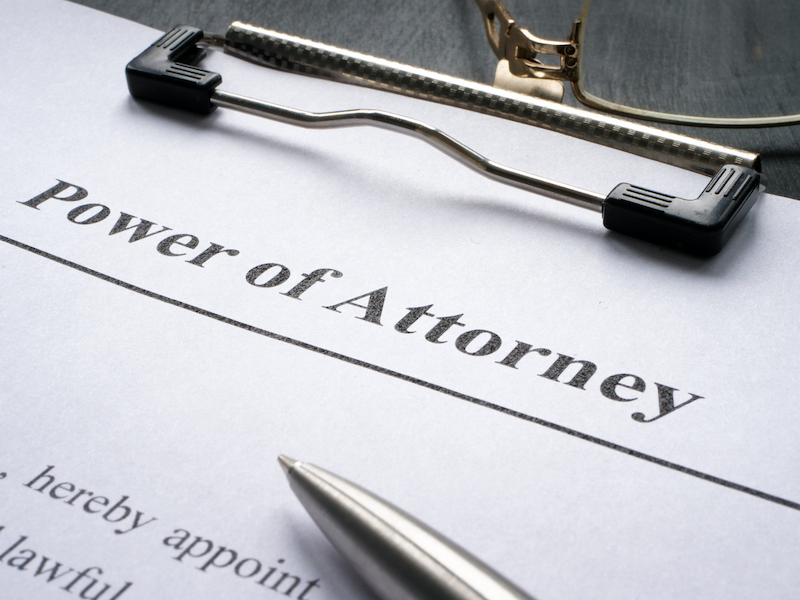Legal planning is a critical aspect of caring for a loved one with dementia. As the disease progresses, it becomes necessary to make decisions about your loved one’s care and finances. Two key legal tools in this process are the Power of Attorney (POA) and Guardianship. Understanding these concepts can empower you to effectively manage your loved one’s affairs and ensure their well-being.
Understanding Power of Attorney
A Power of Attorney is a legal document that allows your loved one (the principal) to appoint someone (the agent or attorney-in-fact) to make decisions on their behalf. There are two main types:
Healthcare Power of Attorney: This enables the agent (POA) to make healthcare decisions if the principal (your loved one with dementia) is unable to do so. It’s essential for managing health and medical care, especially in the advanced stages of dementia.
Financial Power of Attorney: This authorizes the agent (POA) to handle financial matters, such as managing bank accounts, paying bills, and making investment decisions.
Key Points:
Timing: It’s crucial to establish a POA while your loved one is still capable of making decisions. Once they lack legal capacity, they can’t legally appoint a POA.
Scope and Limitations: You can tailor the POA to be as broad or as limited as needed. It’s important to understand the extent of the authority granted.
Choosing an Agent: The agent (POA) should be someone trustworthy and capable of handling the responsibilities, often a family member or close friend. Or, you could hire a professional, such as a fiduciary or an attorney, to act as your agent (POA).
Guardianship: When POA is Not an Option
Guardianship (or conservatorship in some jurisdictions) comes into play when a person is no longer able to make or communicate sound decisions about their person and property, and no POA is in place.
Process: Guardianship is granted by a court and involves declaring the person incapacitated. This can be a complex and sometimes lengthy process.
Responsibilities: A guardian has similar responsibilities to an agent under a POA but is appointed and supervised by the court. They make decisions about healthcare, living arrangements, and financial matters.
Oversight: Guardians are often required to report to the court about their decisions and actions, ensuring the protected person’s best interests are always at the forefront.
Key Points:
Consideration: Guardianship is a significant step and should be considered when other less restrictive alternatives, like POA, are not available or sufficient.
Legal Support: It’s advisable to seek legal counsel to navigate the guardianship process, as it involves presenting evidence in court and following legal procedures.
Planning for the Future
Discuss Early: It’s crucial to discuss legal planning early in the dementia journey. Understanding your loved one’s wishes while they can express them is invaluable.
Professional Advice: Consulting with an attorney specializing in elder law can provide guidance tailored to your specific situation. The National Academy of Elder Law Attorneys (https://www.naela.org/) has a directory you can consult.
Regular Review: Legal documents should be reviewed periodically, as circumstances and laws can change.
The Role of the Caregiver
As a caregiver, you play a vital role in ensuring that your loved one’s wishes and best interests are honored throughout the progression of dementia. Understanding and setting up legal frameworks like POA and Guardianship can be daunting, but they are essential for providing effective care and managing the responsibilities that come with dementia.
Educate Yourself: Stay informed about the legal options and requirements. This knowledge helps in making informed decisions when the time comes.
Open Conversations: Encourage open discussions with your loved one about their preferences for care and decision-making. These conversations, though difficult, are necessary for future planning.
Collaborate with Professionals: Engage with legal professionals, financial advisors, dementia counselors, and healthcare providers to ensure all aspects of your loved one’s care and estate are appropriately managed.
Navigating the legal aspects of dementia care can be overwhelming, but understanding Power of Attorney and Guardianship is a crucial step in safeguarding the well-being of your loved one. By planning ahead and seeking professional advice, you can ensure that their care, health, and financial matters are handled respectfully and in accordance with their wishes. As a caregiver, your proactive approach in this legal planning not only provides security for your loved one but also brings peace of mind to you and your family. Remember, you’re not alone in this journey; there are resources and support systems available to guide you through these legal processes.
If you need dementia caregiver support, please join my dementia support group or schedule your 30-minute consultation.
Connect with Tami
Get information, guidance, and support delivered to your inbox each month.

